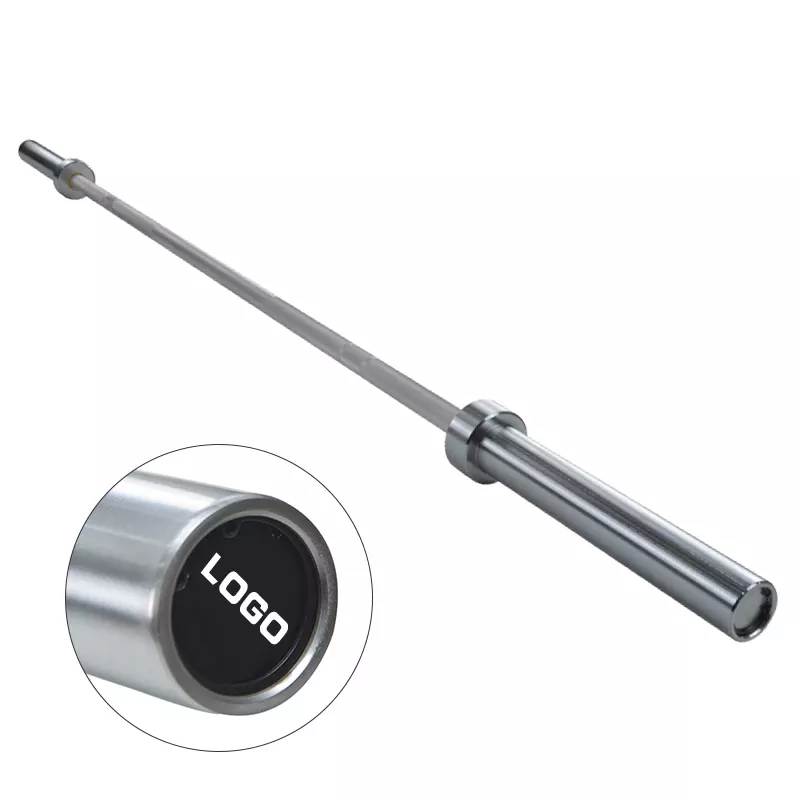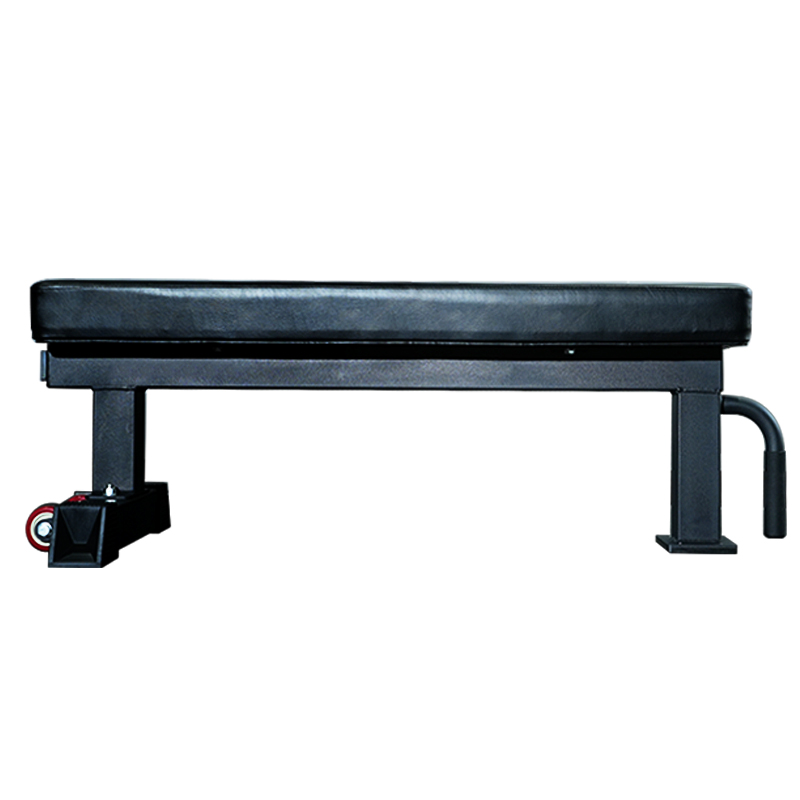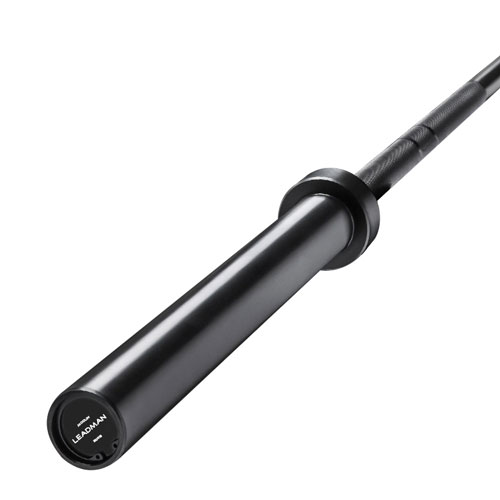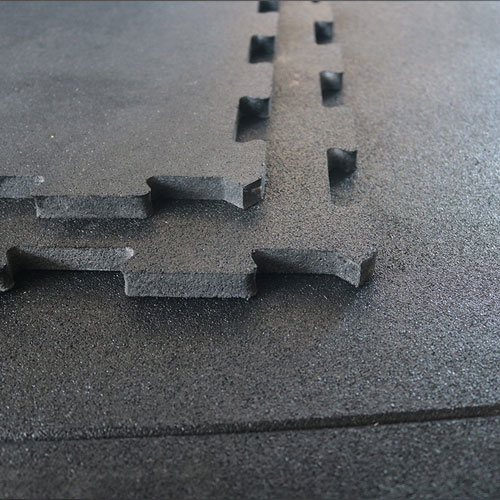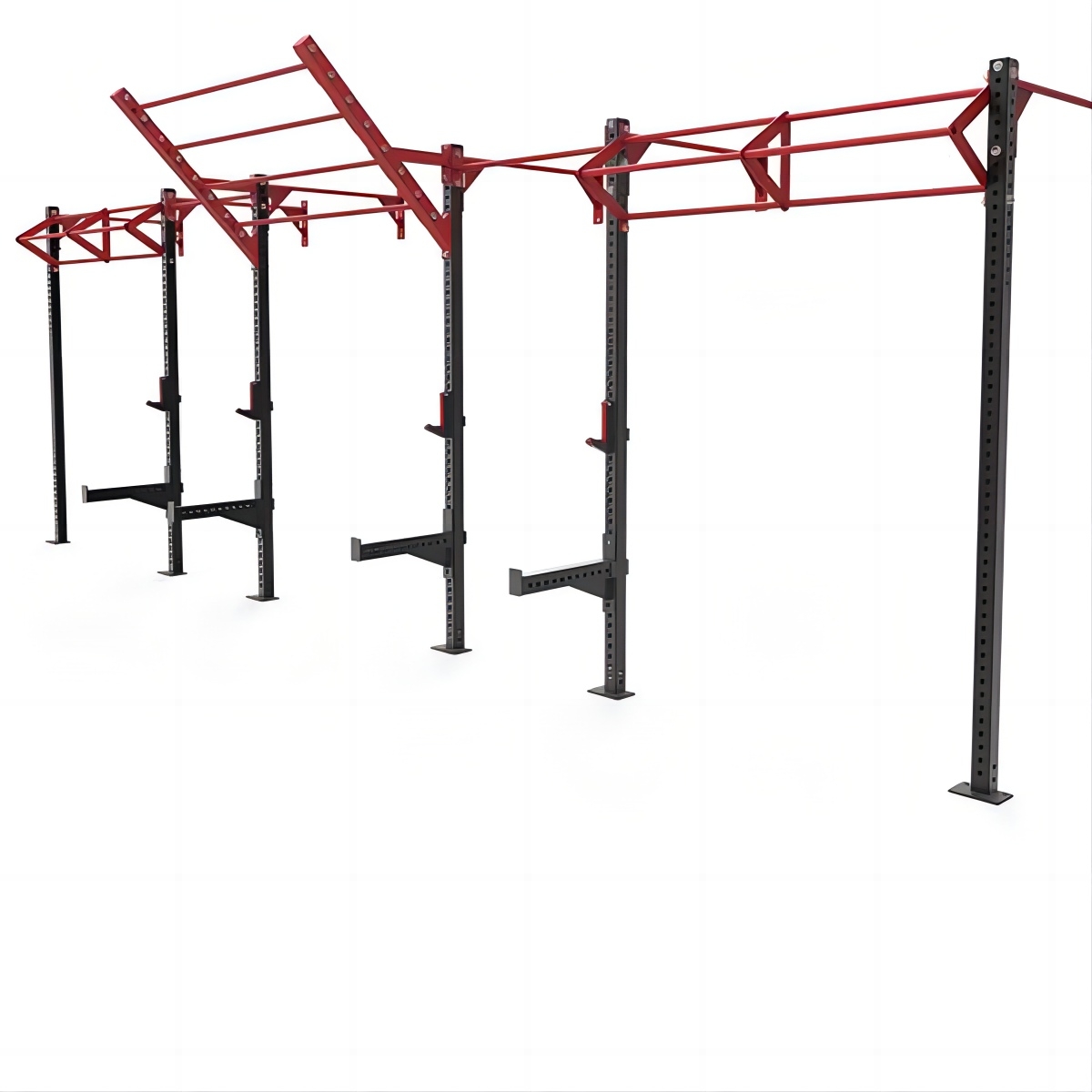Adjustable Weight Bench vs Fixed Bench: Which Is Better?
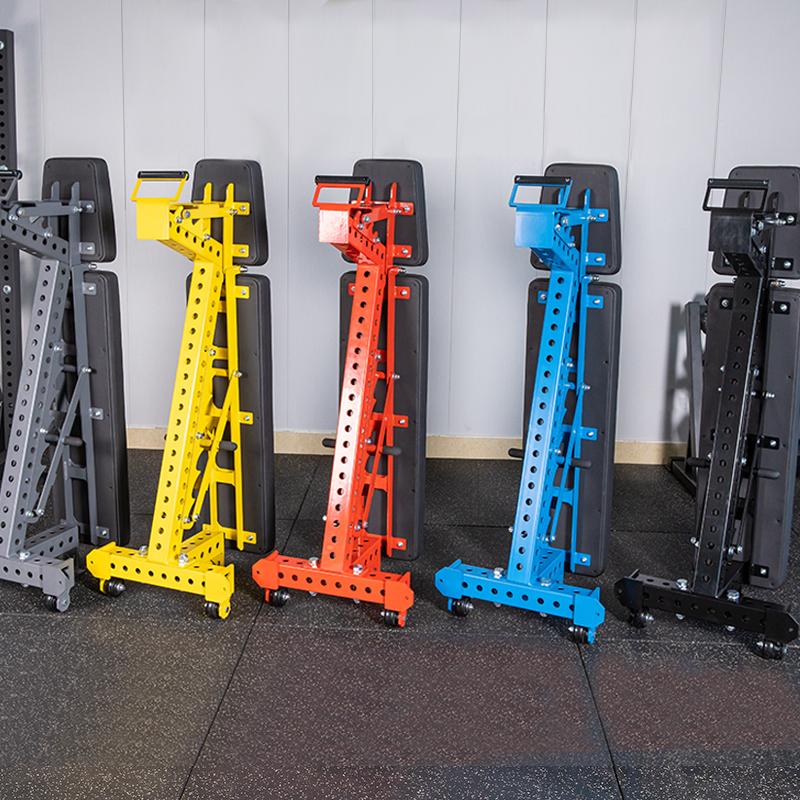
Choosing the right weight bench is a critical decision for any home gym or fitness center. Two popular options—adjustable and fixed benches—cater to different needs, but which one suits you best? By exploring their core differences, you can make an informed choice to boost your workout efficiency and align with your fitness goals.
An adjustable weight bench offers a backrest that shifts from flat to incline or decline positions. This adaptability supports a wide range of exercises, targeting various muscle groups like the chest, shoulders, and core. It's perfect for those who want versatility in their routines, from bench presses to dumbbell flys.
Conversely, a fixed weight bench maintains a single, unchanging angle. Known for its sturdy build, it's a go-to for traditional lifts like the barbell bench press, appealing to users who prioritize stability over flexibility.
Why does this choice matter? The bench you pick shapes your training experience—impacting comfort, exercise variety, and results. Whether you're new to lifting or a seasoned pro, understanding these options ensures your setup matches your ambitions.
Key Differences Between Adjustable and Fixed Benches
Flexibility and Adjustability: The Core Distinction
The standout feature of an adjustable bench is its flexibility. With multiple backrest settings, it enables exercises like incline presses or decline sit-ups, expanding your workout possibilities. A fixed bench, locked in one position, offers less variety but excels as a reliable base for foundational moves.
Weight Capacity: Which Handles More?
For heavy lifters, weight capacity is key. Fixed benches often boast greater durability due to their solid, one-piece construction, reducing instability under significant loads. Adjustable models, with their moving parts, may have lower maximum capacities—always check the specs to match your lifting demands.
Space and Portability Considerations
Space constraints can dictate your choice. Fixed benches, typically bulkier, demand more room and aren't easily moved. Adjustable benches, often more compact and foldable, suit smaller areas, offering a practical solution for home setups where portability matters.
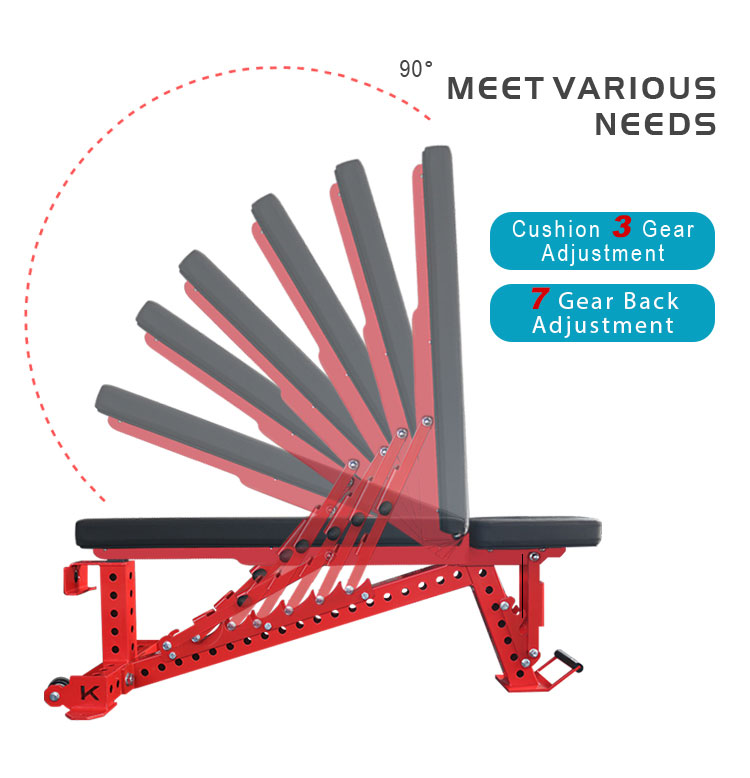
Adjustable Weight Bench
Advantages of an Adjustable Weight Bench
Customizable Angles for Diverse Exercises
Its ability to adjust angles sets the versatile bench apart. Switching from flat to incline or decline activates different muscles—upper chest on an incline, lower chest on a decline—enhancing workout variety without extra gear.
Targeting Multiple Muscle Groups
Beyond convenience, this adaptability engages a broader range of muscles. From chest presses to rows or leg curls, it consolidates multiple exercises into one tool, streamlining your routine.
Suited to Varied Fitness Goals
Whether building strength, size, or endurance, this bench adapts to evolving needs, making it a smart pick for dynamic training plans.
Ideal for Compact Home Gyms
For smaller spaces, its foldable design saves room, reducing clutter while delivering multi-functionality—a must for home gym enthusiasts.
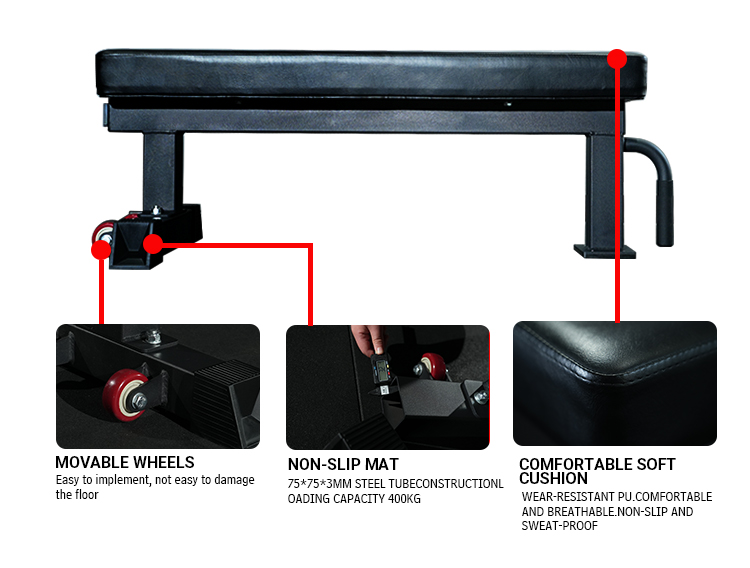
Fixed Weight Bench
The Pros of a Fixed Weight Bench
Simplicity and Durability for Heavy Lifting
A stationary bench shines in its straightforward, robust build. With no moving parts, it's engineered for heavy loads, ensuring safety and longevity during intense sessions.
Stable Design for Strength Training
Its rigid structure minimizes wobble, offering a dependable platform for powerlifters and strength-focused athletes who need unwavering support.
Cost-Effective for Budget Shoppers
Simpler construction often means a lower price, making it an economical choice for those seeking reliable basics without extra features.
Which Bench Wins for Strength Training?
Adjustable Benches for Heavy Lifts
While versatile, adjustable benches may lack the stability for extreme loads due to their adjustable components. They suit moderate lifting with varied exercises.
Fixed Benches for Powerlifters
Powerlifters favor the stationary option for its unyielding base, crucial for max lifts where stability trumps versatility.
Factors for Maximum Lifting Efficiency
Prioritize stability, capacity, and exercise type. Fixed benches lead for heavy, focused lifts; adjustable ones shine for variety.
Space Considerations: Compact Bench Needs
Why Space Matters in Home Gyms
Limited space can restrict workout options. Compact equipment ensures flexibility and comfort in tight setups.
Adjustable Benches vs. Fixed for Space
Foldable adjustable models reclaim space easily, unlike bulkier fixed benches that stay put.
Best Pick for Small Gyms
For apartments or small areas, a versatile bench's portability and multi-use design make it the top choice.
Cost Comparison: Is Adjustable Worth It?
Price Gap Between Options
Adjustable benches cost more due to their complexity, while fixed models offer affordability with basic functionality.
Long-Term Value: Durability vs. Versatility
The versatile bench's adaptability justifies its price for diverse routines; fixed options excel in lasting durability.
When Fixed Wins Economically
For pure lifting focus, a stationary bench delivers value without the added cost of adjustability.
Who Should Pick an Adjustable Bench?
Beginners Seeking Flexibility
Newcomers benefit from its range, exploring exercises as they build skills.
Enthusiasts Wanting Variety
Fitness buffs enjoy its multi-angle options for chest, back, and core work.
Home Gyms with Limited Space
Its compact, foldable nature suits small setups needing multi-purpose gear.
Who Should Choose a Fixed Bench?
Experienced Lifters Needing Stability
Seasoned athletes rely on its solid frame for heavy, safe lifts.
Gym Owners on a Budget
Affordable and durable, it's ideal for high-traffic facilities.
Basic Strength Training Users
For simple presses, it's a no-frills, effective choice.
Conclusion: Which Bench Fits You?
Deciding between an adjustable and fixed bench hinges on your goals, space, and budget. The former offers flexibility for varied workouts, perfect for small spaces or evolving routines. The latter provides a stable, cost-effective base for heavy lifting, favored by strength purists.
At Leadman Fitness, we craft benches with durability in mind, using reinforced steel and rigorous testing to meet diverse needs. Explore our range to find a bench that elevates your training—customized to your space and style.
Get to know us >> Leadman Fitness
FAQ About Fixed Weight Benches
Q1: Why choose a fixed bench for strength training?
Its rigid design ensures stability, reducing movement risks during heavy lifts—a critical factor for safety and precision.
Q2: Are fixed benches more durable?
Yes, their lack of moving parts enhances longevity, making them a reliable choice for frequent, intense use.
Q3: Can fixed benches handle varied exercises?
They excel at core lifts like presses but lack the angle options for broader routines, where adjustable models shine.

